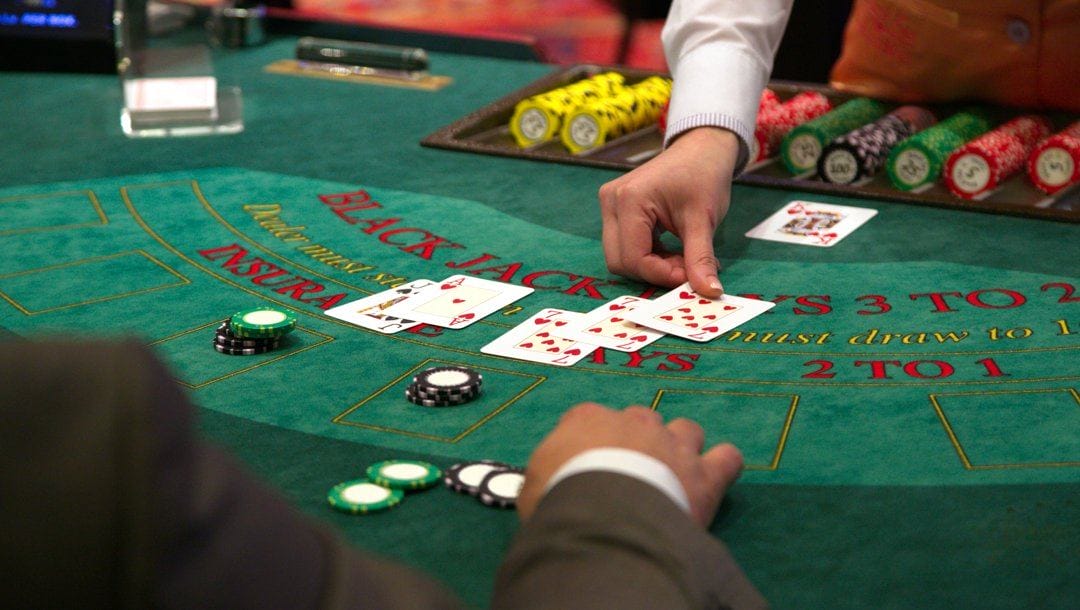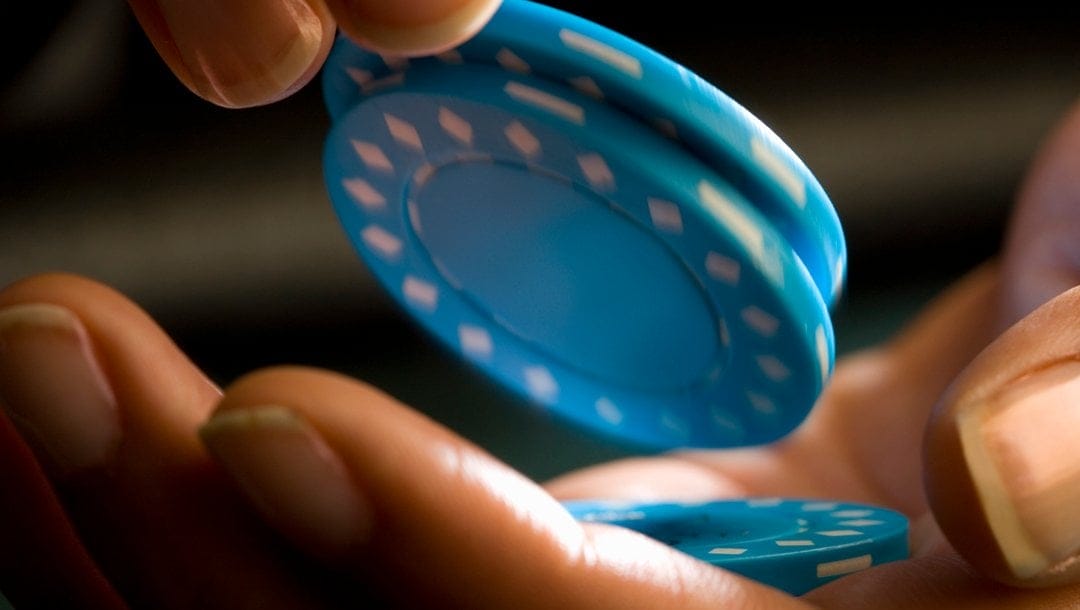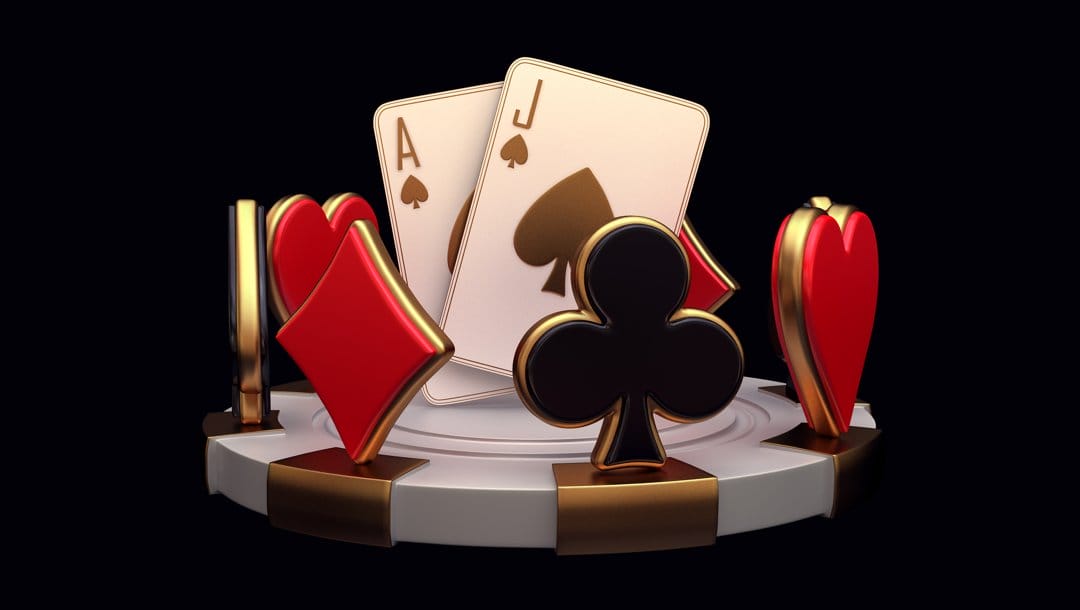The world of blackjack is a rich and complex one in which the flip of a single card can mean triumph or defeat, while strategy plays a very important role. Splitting 8s is a key part of that strategy, regardless of whether you find yourself at a casino table or playing live dealer blackjack online. But what does split mean in blackjack?
Let’s dissect this often misunderstood and frequently misused strategy. Read on to find out what it is, when this tactic is recommended and when not, the odds involved and how this strategy could potentially affect the game’s outcome.
The Rule of Thumb: When To Split in Blackjack
By default, blackjack strategists will tell you to always split aces and 8s. But why do you split 8s in blackjack? It’s simple. When you’re dealt a pair of 8s, your total hand value is sixteen, which is arguably the worst hand you can get in the game. It’s a difficult place to be in, no doubt about it, because if you hit, there’s a good chance of busting.
If you stand, there’s also a good chance of losing — unless the dealer busts. But if you split, you have a chance to turn your precarious situation into a potentially winning one. This hasn’t always been an accepted rule of thumb. In the long and illustrious history of blackjack, it only gained general acceptance in the mid-20th century.
The Four Horsemen and a Man Named Thorp
In 1956, a quartet of mathematicians — Roger Baldwin, Wilbert Cantey, Herbert Maisel and James McDermott — embarked on a mission to decode the secrets of blackjack using manual calculators. Known as the “Four Horsemen” in blackjack circles, they exhaustively analyzed every possible outcome, ultimately determining that splitting 8s often offered more potential than either hitting or standing with a total of 16.
This groundbreaking theory was met with initial skepticism in the blackjack community, which simply dismissed it as yet another blackjack myth. It wasn’t until six years later, when Ed Thorp, a mathematician and pioneer in modern probability theory, used his IBM computer to verify the Horsemen’s conclusions, that the blackjack world started to “play” serious attention.
In his influential book “Beat the Dealer,” Thorp advises players to split 8s when the dealer has an upcard of 7, 8, 9, 10 or ace — his reason being that this move is less about gaining a superior total and more about avoiding the pitfall of holding onto a hard 16.
Also, when the dealer shows a lower card (2, 3, 4, 5 or 6,) splitting 8s doubles the advantage. It turns a poor hand into two average hands and allows players to potentially profit more as the dealer’s chances of busting increase with these lower upcards.
Breaking Down the Odds

Splitting in blackjack essentially gives you two chances to beat the dealer. Each 8 is a much stronger starting point than a hard 16. Plus there are more cards in the deck that can help you reach a respectable hand total from an 8 than from a 16.
When you have two new hands starting with a value of 8, there’s a probability of about 33% that you will draw a 10 or face card, transforming one of your 8-value hands into a strong 18-value hand — a good stance in many blackjack split situations.
There’s also the possibility of drawing a 9, converting your hand value from eight to seventeen. While not as strong as 18, this hand can still result in a push or possibly a win, particularly if the dealer ends up busting.
So, while it’s not guaranteed that you’ll win, splitting 8s increases your overall chances. Sure, sometimes you’ll still lose. You may draw a low card on one or both your split hands or the dealer may get lucky. But remember, it’s all about playing the odds — and the odds say split.
When Not To Split 8s
As discussed, the general advice is to split 8s. But blackjack, like any good game, isn’t just about rigidly following rules. There are exceptions — like when you’re playing in a game with more complex rules or when the count (if you’re counting cards) suggests not splitting.
A common instance where you may decide against splitting 8s is when the dealer shows a 10 or an ace. The rationale is that the dealer has a strong chance of getting a high hand, so why risk more money? This is a defensive move and can sometimes save you from bigger losses.
Playing To Win, Not Lose

That said, the strategy of always splitting 8s, even against a dealer’s 10 or ace, is an offensive strategy, playing to win rather than to avoid losing. Sure, there’s a high probability that you’ll lose, but you’re statistically less likely to lose if you split than if you don’t. It’s about reducing the house edge as much as possible and increasing your chance of winning in the long run.
Affecting the Game’s Outcome
So, how does splitting 8s change the game? Firstly, it optimizes your chances of winning. By splitting your 8s, you turn a tricky hand into two more promising ones.
Secondly, it affects your betting strategy. Yes, splitting 8s means putting more money on the table, but it also means potentially winning more. You’re essentially doubling down on the odds, banking on long-term gains rather than short-term safety.
And finally, splitting 8s also influences the psychological aspect of the game. Much like doubling down, it shows you’re not afraid to make bold moves when the odds are in your favor — and sometimes, just sometimes, that confidence can have a substantial impact on your overall gaming experience.
Split the 8s at BetMGM
In blackjack, as in life, fortune favors the brave. It’s about playing to win, not to avoid losing. Register with BetMGM to take on the dealer with your new splitting knowledge. Become part of a top online casino in the US where you can play a ton of online casino table games, from poker and baccarat to roulette and, of course, blackjack.










